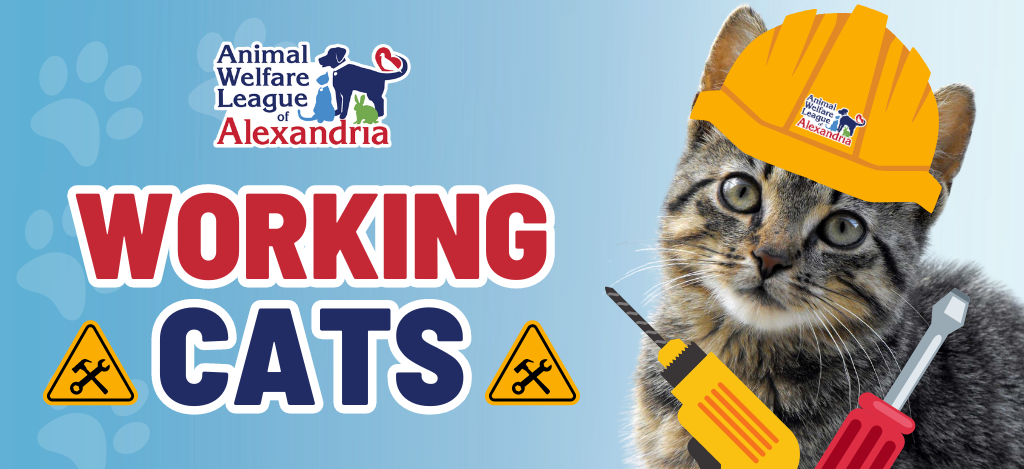
We found your purr-fect new employee! The cats in our Working Cat Program are not house pets. They’re all business! And their business is solving your rodent problems.
Our working cats (also referred to as community cats) are happy to provide their services for barns, stables, garages, warehouses, or even wineries. In return, you provide them with daily food, clean water, shelter, and basic veterinary care for the cat’s lifetime.
All of our working cats receive a physical exam, microchip, flea/tick treatment, vaccines, spay or neuter surgery, and a combo test (for cats 6 months and older). There is NO adoption fee for a working cat.
Where Do Working Cats Come From?
Every so often, a cat who has been living outdoors ends up in the shelter. Having lived on the streets and not been socialized to interact with people, they are not suited to living indoors as companion animals. Through this program, these cats are put back to work, doing what they do best and in an environment that they are accustomed to.
What Do I Have to Do?
There is no adoption fee for a working cat. We ask that when you choose to “hire” a working cat that you accept responsibility for providing food, water, shelter and basic veterinary care for the cat for its lifetime. We also ask that you follow our acclimation protocols (see below) once you take the cat to their new “office,” so they learn to stay put and not leave without submitting their notice.
If you’re interested in adopting a working cat, stop by the shelter during business hours.
What Constitutes “Shelter” for the Cat?
They need space to separate themselves from people, noise and busy activity. The shelter should keep them protected from extreme cold or wet weather. They also need a place to eliminate, which could be a flowerbed, sand box, or litter box.
What are the Acclimation Protocols?
Working cats need a 2-3 week acclimation period where they are contained in an escape-proof area while they acclimate to their new home. During those weeks, they will learn the sounds and smells of their new home, while also learning they will be provided food, water, and a litter box. Once they know this is a well-resourced area, they are likely to hang around.
We recommend an XL dog crate for their acclimation space. We are happy to loan you one.
Find our full acclimation guide here.
After the 2-3 week process, you can simply open the door to the crate and allow the cat to come and go as they please. If you have more questions, you can give us a call at 703-746-4774 or email info@AlexandriaAnimals.org.
